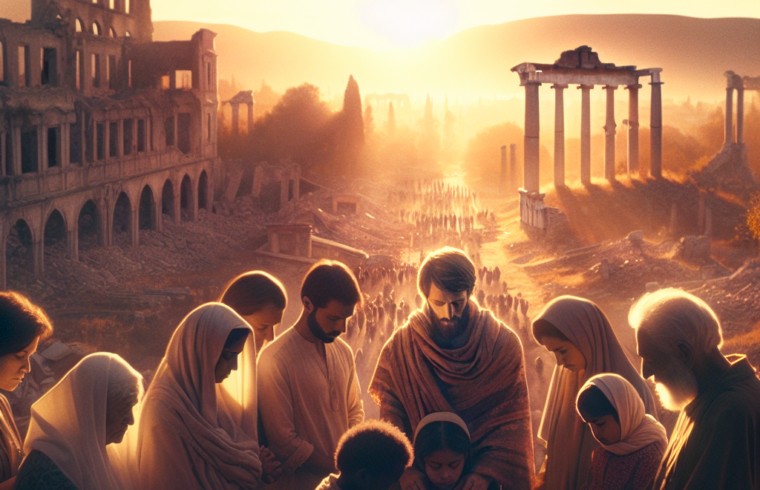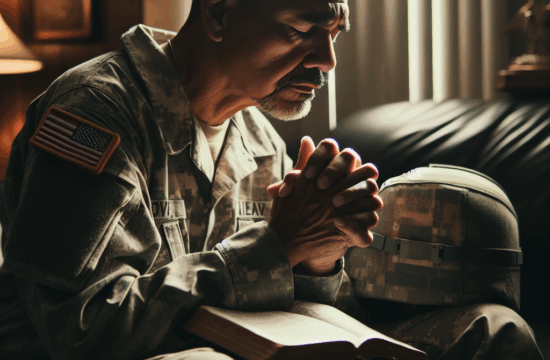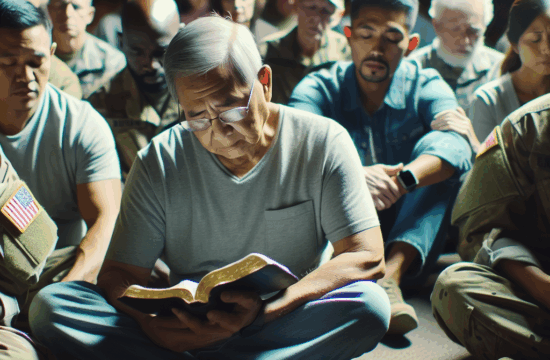==> Thank you for reading this post! Click Here If you are looking for support and Victory over PTSD.
Hey there! As I navigate the journey of healing from trauma, I often reflect on the Biblical principles that can guide us through some of life’s toughest battles—especially those that come from war. It’s incredible how ancient wisdom can resonate so profoundly today. Let’s break this down into five vital areas that I’ve found truly meaningful. Ready? Let’s dive in!
Hope and Restoration
Finding Light in Darkness
One of the first things I had to embrace was the notion of hope. It’s so easy to get bogged down by the shadows, especially post-trauma. But when I delve into scripture, I find verses that remind me that light overcomes darkness. Experiencing war is heavy, and hope feels like a breath of fresh air when the weight gets unbearable.
For me, it was key to grasp that restoration doesn’t always mean going back to who I was before. It’s about transforming the pain into something beautiful. Embracing this belief allowed me to envision a future where the wounds could lead to growth rather than stagnation.
In moments when hope felt elusive, I would often pray or meditate on passages like Jeremiah 29:11, where it says, “For I know the plans I have for you.” This grounded me and helped refocus my energy toward healing instead of despair.
Community Support
It became crystal clear to me that I couldn’t walk this path alone—community is everything! Surrounding myself with people who understood or were willing to listen transformed my recovery. I found that sharing my experiences often lightened the load and provided new perspectives.
I also learned the importance of being vulnerable, which wasn’t easy at first. But as I opened up about my struggles, I found others who were willing to share their stories too. This mutual exchange became a source of strength, reminding me that we are not isolated in our suffering.
There are also biblical references that emphasize the power of fellowship. Whether it’s through church gatherings or support groups, these connections foster an environment where healing can flourish. I made it a point to engage regularly with my community, allowing spirits to lift together through shared faith and support.
The Role of Forgiveness
Ah, forgiveness—the very word can stir up so many emotions! Initially, I thought forgiving those who had wronged me in the context of war was just about letting them off the hook. But I realized it was more about freeing myself from the chains of anger and bitterness.
Understanding forgiveness through a biblical lens was enlightening. Jesus teaches us about the necessity of forgiving others, not just for their sake but for our own peace. Every time I felt the urge to cling to resentment, I reminded myself that holding onto anger was like drinking poison and expecting the other person to suffer.
Practicing forgiveness wasn’t an overnight fix, but it became a gradual journey of letting go, which ultimately brought me greater peace. I began to realize that the path to true recovery cannot be paved with grudges; rather, it must be built on the foundation of grace.
Faith and Trust
Building Trust in God
One area I’ve really had to work on is my trust in God, especially after experiencing trauma. It’s easy to feel abandoned during the darkest times, but I discovered that trustingGod’s plan is crucial to finding peace. Leaning into faith, especially through scripture and prayer, helped me build that foundation.
Each small step of faith has led to monumental shifts in my mindset. I remember praying fervently for guidance, and as I leaned into God’s word, I felt a sense of calm wash over me. It was a reminder that He never leaves us, even when it feels like we are lost in the storm.
Throughout this process, I realized that trust is more than belief; it’s about acting on that belief. By engaging in daily practices—like reading inspirational Proverbs or meditating on Jeremiah 17:7, which says, “Blessed is the one who trusts in the Lord”—I grounded my healing journey in faith.
Prayer as a Tool for Healing
I can’t stress enough how powerful prayer has been for my healing journey. It acting as a direct line to God—like a reassured friend who listens and comforts. Whenever I felt overwhelmed by memories of war, I would turn to prayer, pouring out every ounce of my frustration and fear.
I learned that prayer doesn’t have to be eloquent; it just needs to be genuine. Many times, my prayers were simply cries for help, and that honesty drew me nearer to God. I found strength in scriptures that encourage us to cast all our anxieties on Him (1 Peter 5:7).
In addition, I discovered that prayer is a two-way conversation. Listening for God’s guidance has been revealing, and it often comes in unexpected forms—from spontaneous encounters with others to insights during meditation. Keeping that channel open made a huge difference in my heart and mind.
The Importance of Patience
Let’s face it: healing takes time. That’s something I had to remind myself repeatedly. Society often pushes for quick fixes, but trauma recovery isn’t one of those things. Embracing patience was incredibly key for me. Recognizing that progress sometimes comes in fits and starts allowed me to breathe through the setbacks without spiraling into discouragement.
Get Support and Help with Recovery! Visit us for more Information and Support
Biblical teachings on patience, such as Romans 5:3-4, emphasized that suffering produces perseverance, character, and hope. This perspective helped shift my focus from the immediate pain to the growth that could come sequentially. It’s all part of the process!
So, in practice, I embraced little victories each day. Whether it was having a good conversation or just feeling a touch more at peace, I learned to celebrate those moments. Patience, I found, became a significant part of my healing toolkit. Healing isn’t a race; it’s a beautiful journey.
Living in the Present
The Power of Mindfulness
Practicing mindfulness has been nothing short of transformative. Instead of dwelling on the past trauma, I learned to ground myself in the present moment. This shift wasn’t just beneficial for mental health; it synced so well with Biblical teachings about living in the moment and trusting in God’s plan for right now.
Mindfulness allowed me to appreciate the simple joys—like sunshine filtering through leaves or a warm cup of coffee. Embracing those minute details helped shift my focus from the chaos of war to the beauty of life happening around me.
Engaging in mindfulness practices—like meditation and deep-breathing exercises—became part of my daily routine, cultivating peace within. The struggles may linger in the back of my mind, but grounding techniques have equipped me to handle them when they arise, creating a clearer path forward.
Gratitude Journaling
Alongside mindful living, I introduced gratitude journaling into my life. Taking just a few moments each day to jot down what I’m grateful for shifted my perspective drastically. I found that recalling the good things, however small, fostered positivity and hope.
It’s like an exercise for the heart and mind! Even on the rough days, identifying silver linings became a powerful habit. Whether it was appreciating a kind word from a friend or a vibrant sunset, documenting these moments became a testament to the fact that life, even post-conflict, still holds beauty.
This practice aligns beautifully with Philippians 4:8, which encourages focusing on what is pure and lovely. Keeping a gratitude journal grounded me and helped foster a balanced mindset, empowering me with the resilience needed to face challenges ahead.
Acceptance of the Journey
Lastly, I embraced the beauty of acceptance. Owning the reality of my experiences, including the pain and the struggle, was a pivotal part of healing. It’s often tempting to wish things were different, but learning to accept where I’m at has proven to be liberating.
This journey doesn’t mean resigning to the past or refusing to change; it’s about acknowledging the present and sculpting a path from it. I found empowerment in accepting my story, transforming it from a source of shame to a narrative of resilience.
Acceptance isn’t an endpoint; it’s a part of the weaving process of healing. Allowing myself to feel the mix of emotions that come with recovery has been essential in reclaiming my narrative one step at a time. Each facet, each layer, contributes to the whole of who I am now.
Frequently Asked Questions
What is the central focus of Biblical recovery from war trauma?
The central focus is on integrating Biblical principles into the healing process, emphasizing hope, community support, forgiveness, faith, and mindfulness based on personal experiences after trauma.
How can community support aid in recovery?
Community support provides understanding and shared experiences, facilitating connections that lighten the emotional burden and promote healing through togetherness.
What role does forgiveness play in the recovery process?
Forgiveness is crucial as it releases the grip of anger and bitterness, allowing individuals to move forward towards peace rather than being anchored by past grievances.
How can prayer support someone recovering from trauma?
Prayer fosters a personal connection with God, providing comfort, clarity, and a space for vulnerability, which is essential in navigating the emotional landscapes of trauma.
Why is patience important in the healing journey?
Patience ensures individuals recognize healing doesn’t follow a strict timeline. It encourages acceptance of progress at every stage, allowing for growth and resilience over time.













